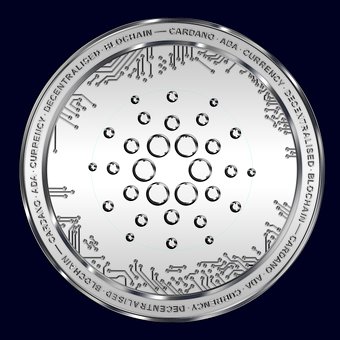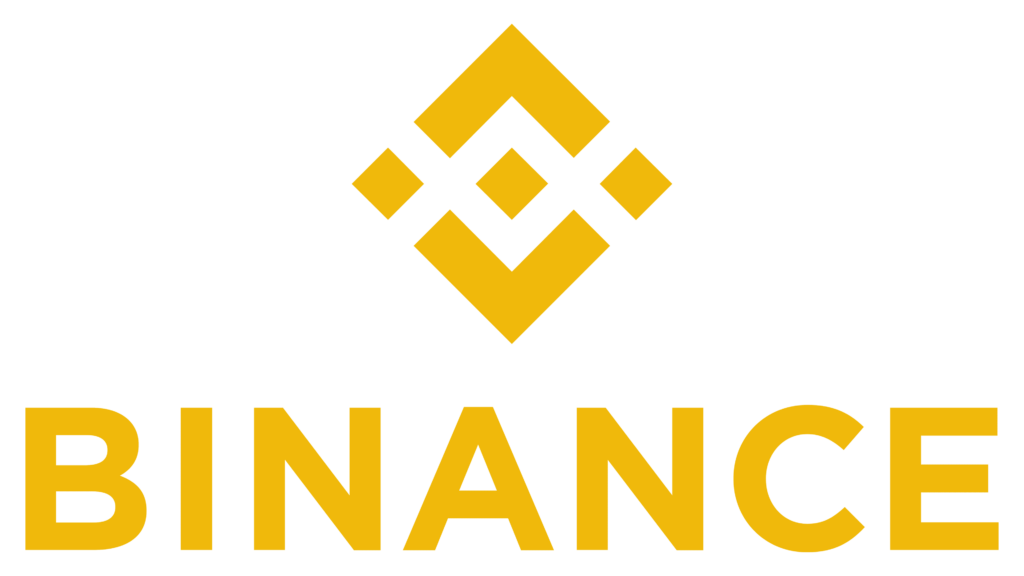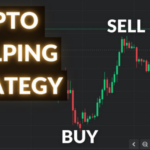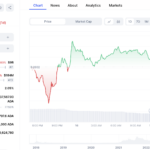What is Cardano?
Cardano is an open-source blockchain platform that was launched in 2017 by Input Output Hong Kong (IOHK), a blockchain research and development company led by Charles Hoskinson, a co-founder of Ethereum. The project is named after Gerolamo Cardano, an Italian polymath from the 16th century who was known for his work in mathematics, physics, and philosophy.
Cardano is a third-generation blockchain platform that aims to solve some of the scalability, interoperability, and sustainability issues that have plagued earlier blockchain networks. It uses a proof-of-stake (PoS) consensus algorithm called Ouroboros, which is designed to be energy-efficient and secure, and also allows for the creation of smart contracts and decentralized applications (dapps) on its platform.
One of the unique features of Cardano is its layered architecture, which is designed to separate the different functions of the platform into different layers, making it more modular and flexible. The platform consists of two layers: the Cardano Settlement Layer (CSL) and the Cardano Computation Layer (CCL). The CSL handles transactions and the transfer of value, while the CCL is responsible for running smart contracts and dapps.
Cardano also has its own cryptocurrency called ADA, which is used to pay transaction fees and to incentivize participants in the network. ADA is currently one of the top 10 cryptocurrencies by market capitalization.
Overall, Cardano aims to provide a more sustainable and scalable blockchain platform that can support a wide range of use cases, from financial applications to supply chain management and more.

Why was Cardano created?
Cardano was created to address some of the shortcomings of existing blockchain platforms, such as Bitcoin and Ethereum, and to provide a more scalable, interoperable, and sustainable blockchain solution. Specifically, Cardano was created to:
- Improve Scalability: Earlier blockchain platforms, such as Bitcoin and Ethereum, are limited in terms of the number of transactions they can process per second. Cardano aims to improve scalability by using a layered architecture that separates the transactional and computational functions of the network.
- Enhance Interoperability: Cardano aims to provide a platform that can be used by different industries and applications. The platform is designed to be modular and interoperable, allowing for different components to be added or removed as needed.
- Increase Sustainability: Bitcoin and Ethereum use a proof-of-work (PoW) consensus algorithm, which requires a large amount of computational power and energy consumption. Cardano uses a proof-of-stake (PoS) consensus algorithm, which is designed to be more energy-efficient and sustainable.
- Enable Smart Contracts and Dapps: Cardano provides a platform for the development of smart contracts and decentralized applications (dapps), which can be used for a variety of purposes, such as financial transactions, supply chain management, and more.
In summary, Cardano was created to provide a more advanced blockchain platform that could support a wider range of use cases and applications, while also addressing some of the technical and environmental challenges faced by earlier blockchain platforms.
How is Cardano regulated?
Cardano is a decentralized blockchain platform that is not regulated by any central authority or government. It is a permissionless network, which means that anyone can participate in the network as a user, developer, or validator without needing permission from any central authority.
However, in some jurisdictions, there may be regulatory requirements that apply to the use or trading of cryptocurrencies, including ADA, which is the cryptocurrency used on the Cardano platform. For example, some countries require cryptocurrency exchanges to register with regulatory authorities or obtain licenses to operate.
The Cardano Foundation, which is one of the three entities responsible for the development and promotion of Cardano, is based in Switzerland and is subject to Swiss law. The foundation has stated that it is committed to complying with all relevant laws and regulations in the countries where it operates, and it has implemented measures to ensure compliance with anti-money laundering (AML) and know-your-customer (KYC) regulations.
In addition, the developers of Cardano have worked closely with regulators and industry stakeholders to promote the adoption of blockchain technology in a responsible and sustainable manner. For example, the Cardano team has participated in discussions with the United Nations and other international organizations to explore the use of blockchain technology in areas such as identity management, supply chain management, and more.
Overall, while Cardano itself is not regulated, the use and trading of ADA and other cryptocurrencies may be subject to regulatory requirements in some jurisdictions, and the Cardano Foundation and other entities involved in the development and promotion of the platform are committed to complying with relevant laws and regulations.
Is Cardano a good investment?
We cannot provide financial or investment advice, and you should always conduct your own research and seek advice from a professional financial advisor before making any investment decisions.
That being said, the value of Cardano’s cryptocurrency, ADA, has shown significant growth since its launch, and the platform has a strong community of developers and supporters. The platform’s focus on scalability, interoperability, and sustainability may make it an attractive option for developers and businesses looking to build decentralized applications.
However, it’s important to note that the cryptocurrency market is highly volatile, and the value of ADA and other cryptocurrencies can fluctuate rapidly based on a variety of factors, such as market sentiment, regulatory changes, and technological developments.
Investing in cryptocurrency is also subject to a high degree of risk, and it’s important to only invest what you can afford to lose. It’s important to conduct your own research, evaluate your investment objectives, and assess your risk tolerance before making any investment decisions, including investments in Cardano.
Who created Cardano?
Cardano was created by Input Output Hong Kong (IOHK), a blockchain research and development company led by Charles Hoskinson. Hoskinson is a well-known figure in the cryptocurrency and blockchain space, and was also one of the co-founders of Ethereum, another popular blockchain platform.
Hoskinson and IOHK began work on Cardano in 2015, and the platform was launched in 2017. Since its launch, Cardano has been developed and supported by a team of developers and community members, including the Cardano Foundation and Emurgo, two other entities that are responsible for the promotion and development of the platform.
Overall, Cardano was created by a team of experienced blockchain developers and enthusiasts, led by Charles Hoskinson, who saw an opportunity to create a more advanced and sustainable blockchain platform that could support a wider range of use cases and applications.
Where and how to buy Cardano?
Cardano’s cryptocurrency, ADA, can be bought and traded on various cryptocurrency exchanges. Here are the general steps to buy ADA:
- Set up a cryptocurrency exchange account: Choose a reputable cryptocurrency exchange that supports ADA trading, and create an account by providing your personal and financial information.
- Verify your identity: Most cryptocurrency exchanges require users to complete a verification process before they can buy or trade cryptocurrencies. This usually involves providing a government-issued ID and other personal information.
- Add funds to your account: Once your account is set up and verified, you can add funds to your account using a bank transfer, credit/debit card, or other payment methods supported by the exchange.
- Buy ADA: Once your account is funded, you can navigate to the ADA trading pair and place an order to buy ADA using the available funds in your account.
It’s important to note that the process of buying and selling cryptocurrencies involves a high degree of risk, and the value of ADA and other cryptocurrencies can fluctuate rapidly based on a variety of factors. It’s important to conduct your own research, evaluate your investment objectives, and assess your risk tolerance before making any investment decisions, including buying ADA.
Also, make sure to use a reputable and secure cryptocurrency exchange to ensure the safety of your funds.
What are the best Cardano wallets?
There are several wallets that support Cardano’s cryptocurrency, ADA. Here are some of the popular and reputable options:
- Daedalus Wallet: This is the official desktop wallet developed by IOHK specifically for Cardano. It offers advanced security features and allows users to store and manage their ADA in a user-friendly interface.
- Yoroi Wallet: This is a lightweight and secure wallet developed by Emurgo, another entity involved in the development of Cardano. It offers a simple and user-friendly interface and can be used as a browser extension or a mobile app.
- Ledger Nano S and Nano X: These are hardware wallets that support ADA and provide advanced security features, such as two-factor authentication and offline storage of private keys.
- Trezor Model T: This is another hardware wallet that supports ADA and provides advanced security features, such as a PIN code and passphrase.
It’s important to note that while hardware wallets are generally considered to be more secure, they may come at a higher cost compared to software wallets. Additionally, make sure to download wallets from official sources and take appropriate security measures to ensure the safety of your funds.
Can you mine Cardano?
No, Cardano’s cryptocurrency, ADA, cannot be mined like some other cryptocurrencies such as Bitcoin. Instead, Cardano uses a proof-of-stake consensus algorithm called Ouroboros, which relies on a network of validators who hold and stake their ADA to secure the network and validate transactions.
Validators on the Cardano network are selected randomly based on the amount of ADA they have staked, and the more ADA a validator stakes, the higher their chances of being selected to validate transactions and earn rewards in the form of ADA.
This means that if you want to participate in the Cardano network as a validator, you need to hold and stake your ADA using a Cardano wallet that supports staking. Additionally, there are some minimum requirements and technical considerations that you should be aware of before staking your ADA, such as network connectivity and uptime requirements.
Is Cardano mining profitable?
As I mentioned earlier, Cardano’s cryptocurrency, ADA, cannot be mined like some other cryptocurrencies such as Bitcoin. Instead, Cardano uses a proof-of-stake consensus algorithm called Ouroboros, which relies on a network of validators who hold and stake their ADA to secure the network and validate transactions.
Validators on the Cardano network earn rewards in the form of ADA for their participation in securing and validating transactions on the network. However, the amount of rewards that validators can earn depends on a variety of factors, such as the total amount of ADA staked on the network, the validator’s share of the total stake, and the network’s inflation rate.
It’s difficult to predict the profitability of staking on the Cardano network, as it depends on various factors, such as the market value of ADA, the validator’s staked amount, and the network’s inflation rate, among others. However, in general, staking on the Cardano network can be a potentially profitable way to earn rewards while contributing to the security and decentralization of the network.
That being said, staking ADA and participating in the Cardano network comes with risks, including the possibility of losing a portion of your staked ADA if you violate the network’s rules or experience downtime or technical issues. As with any investment or financial decision, it’s important to conduct your own research and evaluate your risk tolerance before staking your ADA on the Cardano network.
Which celebrities endorse or invest in Cardano?
We are not aware of any celebrities who have publicly endorsed or invested in Cardano. While some celebrities have publicly expressed interest in cryptocurrencies or have invested in other cryptocurrencies, such as Bitcoin or Ethereum, there is no publicly available information indicating that any celebrity has endorsed or invested in Cardano specifically.
It’s worth noting that celebrity endorsements or investments should not be considered as investment advice, and investors should always conduct their own research and evaluate their risk tolerance before investing in any cryptocurrency or financial asset.







